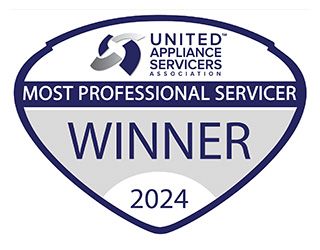2020 Laundry Buying Guide – Best Washers and Dryers for Your Money
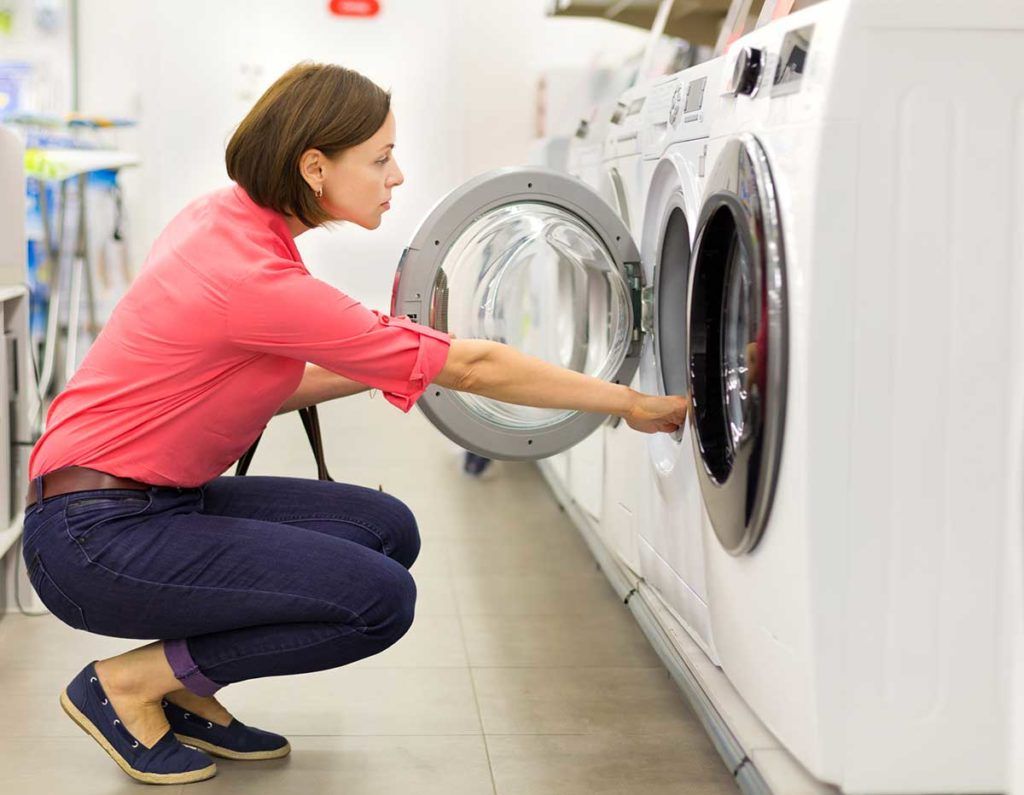
Like our 2020 refrigerator and dishwasher buying guides, this 2020 Laundry Buying Guide will help you find the best washers and dryers for your money by answering two questions:
- How reliable is each brand, and what is the quality of their customer service when the product breaks?
- How can you determine which washers and dryers are better at the task of cleaning and drying clothes?
Appliances, like cars, have a cost to own beyond the sticker price. Once you factor rebates, utility costs, inability to clean stains, wear and tear on your clothes, repairs, and replacement into the equation, the ultimate cost to you may be far more or less than you think.
We will draw on decades of experience as appliance service technicians, as well as an engineer’s understanding of how these appliances work, to help you shop for your next washer and/or dryer.
Reliability and Manufacturer Support
What service is available in my area?
The first bit of research you should do with any brand of laundry appliance is to see what service is available in your area (at the end of the guide, we provide a table with links to each brand’s service locator). Nothing is more frustrating than having an appliance break and discovering there are no options for getting it fixed where you live.
- Some areas in the US have no servicer for the brand.That’s not to say that no one in the area will be able to service the dishwasher, but it usually means those technicians aren’t very familiar with the product and parts may be difficult to come by. Don’t risk it.
- Some areas have only one authorized servicer.Do your research before you commit to a brand. If it sounds like they are a nightmare to work with—poor communication, low success rate, lack of care for their customers—don’t sign yourself up for the nightmare in case your product breaks under warranty.
How much is the lifetime cost of ownership?
Digging deeper into the true cost to own for washers and dryers, next look into:
The generosity of the manufacturer warranty
Our guide ends with a table that includes grades for each brand’s laundry appliance warranty, so be sure to check out those grades. Additional warranty related items to consider include:
- Full v. limited warranties.Most appliance warranties work the same way: one or two years’ coverage for the whole appliance (including labor); more years to cover the cost of electronic components, washer motors (no labor); and longer coverage for tubs. No-brainer here: more years are better than fewer.
- Brands that play fast and loose with the warranty.On the flip side of that, it’s worth noting that warranty details don’t always tell the full story. Some brands go the extra mile regardless of whether the product is under warranty—“Oh you’re a few months out of warranty, don’t worry, we’ll take care of it”—or whether the issue is with the appliance. We have known manufacturers to pay for a warranty visit when it was just an issue with the home or a product education issue (e.g. Samsung and Bosch).

Yes, longer, more comprehensive warranties are better because they save you money by covering the cost of more repairs. More than that, a better warranty also indicates that a brand is more willing to stand behind its customers as well as its product.
BUYER BEWARE, do not be suckered into paying for coverage from an extended warranty company. Read why it’s almost never a good idea to buy an extended warranty here.
How often it will require service
We have data going back years and years and know a thing or two about the reliability of these brands. You can check out the table at the end of the guide for our reliability grades, but here are a couple quick ways to spot reliability:
- Take care of your appliances!The most important thing you can do to prevent your laundry appliances from requiring service is to take better care of them. Don’t overload your washer and dryer, cut back on detergent use to 1 tbsp per load, clean washer door boot seals and drain traps every few months, run a cycle of Washer Magic every few months, clean out the lint filter after every use (and NEVER use dryer sheets), and if your dryer is vented schedule a dryer vent cleaning annually.
- Front-load washers are more reliable and often easier to maintain.Front-load washers have fewer moving parts that can break and typically use higher-quality materials. Top-load washers, on the other hand, tend to use more plastic gears and parts, which are cheaper to produce and lower the price of the appliance. Most front-load washers also offer front-accessible drain pumps and drain traps. This makes them easier to clean and easier for technicians to service.
- Gas dryers have a higher risk factor.While electric dryers have their own drawbacks, gas dryers have an open flame inside the machine which, when mixed with lint buildup, can pose a serious risk to your household.
- Multi-tub options increase the failure rate.Multi-tub options like Samsung’s FlexWash and LG’s TWINWash are helpful but akin to having a second, smaller washer. As a self-contained unit with its own set of parts, it nearly doubles the chances of something breaking down and requiring repair, which can hurt when you’re out of warranty. The systems are cool, but if reliability is a concern, buy a washer with a larger capacity and run small loads on the lowest settings available.
- Newer tech is cool but less proven.Heat pumps are an exciting new technology in dryer technology. Heat pump dryers uses a more complicated condenser system to generate heat at lower levels than older dryer models. Because they produce less heat, they are far gentler on clothes and offer nearly double the energy efficiency. But because the technology is on the newer side, it is less tested and proven than previous condensation and vented dryers.
- The higher the cost, usually the more reliable the washer and dryer.These are complex machines with moving parts and electronic components expected to quietly produce spotless, unwrinkled clothes without breaking down, catching fire or leaking. For that reason, you should be wary of any laundry appliance that comes cheap. Good design, production and quality assurance cost money. So the more a product costs to build and quality test, the more it will cost consumers to buy.
- The length of the warranty (and additional warranties) demonstrates a brand’s trust in their product.This is a good indicator for how much trust the manufacturer has in the quality of their engineering, the error-free nature of their production lines, and the reliability of their products. They wouldn’t offer so many years of coverage if they thought the appliance would be breaking down all the time.
- How easy do they make installation?After you buy your laundry appliances, installation is the next step. Many dealers offer installation, but not all. Or you may be the sort of customer who wants to shop around for that service. Contact the manufacturer to learn what they can do to support your installation experience. And when installing your dryer, make sure the installer adds a ground connection or strain relief, as improperly installed power cords on dryers is the biggest safety issue in most laundry rooms.
- How easy do they make warranty calls?If your product breaks while under warranty, some manufacturers like Bosch and ASKO are flexible, allowing you to call an authorized servicer directly and avoid the rigmarole of the call center experience. Other manufacturers, such as Samsung and LG, insist that customers go through an extended phone support experience before they determine service is needed. Sometimes poor communication between the manufacturer and authorized service companies means customers have to repeat information to the servicer.
- How many resources do they provide owners with?Check out the owner portal of their website. Is there a lot of information readily at hand, including warranty information and manuals? Are there use and care guides covering how to clean the washer tub or troubleshoot a dryer that doesn’t heat? Easily accessible resources like these will make your life a lot easier.
- Check for service in your area before you buy
- Take a close look at the warranty info
- Review our reliability and service support grades
- Look around on the website for resources for owners
- Front-load washers are really, truly so much better.Why are front-load washers more expensive? For starters, they clean better, which is why they’re the standard in all commercial laundromats. By moving clothes through the water — instead of the water through the clothes — and doing so at a faster spin speed, they are better at removing soil from clothes. They also require much less water, and with less water to heat, significantly less energy use, making for more efficient appliances with significant energy savings. They often have a larger capacity to handle bigger loads. With fewer moving parts, they do less wear and tear to your clothes AND break down less often. Plus, they’re easier to maintain. Buy a front-load washer and promise us not to overload it.
- Steam washers fight grime, germs, allergens and wrinkles.Steam washers use a mixture of steam and water cycles to supercharge your cleaning, starting with steam, adding water, then ending with steam. Because steam is water at a far higher temperature, it relaxes the fibers of clothing even more and is thus better at loosening dirt and stains deep in the fibers of clothes (basically, it’s a hot cycle on steroids). Steam washers are also better at killing germs, if sanitization is a concern for you. Steam washers effectively remove the need for prewash soaking or stain treatment. And ending with a steam cycle refreshes clothing and removes wrinkles. There are tradeoffs: the hotter your washer, the more energy used and the more wear and tear on your clothes. So we wouldn’t recommend using the steam washer every cycle, or even most cycles, but it’s a great “in-case-of-emergency” cycle to have at your disposal.
- Faster spin speeds make for cleaner, drier clothing.Faster spin speeds (up to 1800 rpm) get more water out of fabrics, and since detergents work by binding to and loosening soil buildup on clothes while binding to the water passing by, spinning that water out also spins out the soil buildup. By getting more water out of clothes, laundry also emerges drier, thus requiring less time in the dryer. Obviously, use care with higher spin speeds. Some items, like wool and delicates, should not be spun at high speeds. High speeds can also contribute to more wrinkles in, say, cotton business shirts, but in the hands of a steam washer this is less of an issue.
- Ask how it handles vibration and balancing.Faster spin speeds aren’t everything, though. The faster washers spin, the more vibration they create, which can cause the machine to go off-balance. Not only is this noisy, it’s dangerous, which is why many machines reduce speeds in off-balance states, sacrificing cleanliness for safety. Some machines, though, have features that counteract this common problem. Samsung’s Vibration Reduction Technology (VRT) keeps vibration to a minimum and counterbalances the machine when off-balance to allow it to continue operating at high speeds.
- Think about how you do laundry.Do you save up your laundry then run one large load? Look for a high-capacity front-load washer. Do you always find you’ve forgotten a shirt you intended to wash, or dropped a sock on the way to the laundry room? Consider washers with a feature like Samsung’s AddWash. Need really fast, efficient cycles to handle small loads quickly? Look for a washer with speed wash cycles. You get the picture.
- Moisture sensors work great when used and maintained properly.We definitely encourage you to find a dryer with a moisture sensor, which automatically shuts off the dryer when clothes are no longer giving off moisture (that is, are dry). This results in faster cycles, less wear on your clothes, and lower energy use. The sensors work as long as you don’t overload the dryer, because overloading may accidentally trip the sensor while other clothes still need to dry. Also, once a year, the sensor needs to be wiped down with acetone to remove buildup.
- Steam dryers help refresh wrinkled clothing, but offer little else.Steam cycles are great for refreshing wrinkled clothes quickly, but there’s little need for steam outside of refreshing clothing in a dryer setting. With a steam washer and an inexpensive iron, you won’t find much use for the steam dryer.
- More heat = more damage.The hotter the dryer gets, the more damage it does to your clothes. Sure, you get shorter cycle times, but you also get shorter lifespans for your clothes and have to worry about clothes shrinking. You don’t need a dryer that gets hotter than 135º, which is the standard high among modern dryers.
- How many preset modes does it come with?No load of laundry is alike. Some loads have deep stains, some have delicates, some are smaller, and some need to be finished right now before we’re late for work. Engineers spend a lot of time and effort designing these various modes to meet the many needs of homeowners, and when used correctly and in conjunction with the use and care instructions for your clothes (check your tags, people), they will result in better-cared-for clothes ready to wear. So when doing your research, know that more preset modes mean the engineers spent more time giving you options and getting them right. Of course, if you do buy appliances with many options, you will have to promise to read the use and care manual after you buy your machine.
- Are smart washers and dryers worth it?Ask yourself, is adding 1 tbsp of detergent to a load that much effort that you require auto-dosing (because it should only ever be 1 tbsp or less)? Are you so annoyed with the sound of your washer and dryer running that you have to be outside of the home while it happens? Then yes, maybe a smart washer and dryer would be your thing. But by and large, smart laundry appliances will not radically change your use of the appliance, and informed human choice of detergent levels and laundry modes will be better than what the machine can offer.
- Using more water and energy does not make for cleaner clothesDon’t for an instant believe that higher efficiency washers sacrifice anything when it comes to getting clothes clean. Engineers are constantly designing machines to wash clothes more effectively using fewer resources. The one thing to always avoid, and this is true for any washer, is overloading the machine. Not only does this damage your washer, in high-efficiency washers it makes it difficult for the washer to ensure all clothes are completely washed.
- Front-load washers are simply more efficientBy moving clothes through the water instead of water through the clothes, front-load washers can use significantly less water per cycle (while cleaning clothes better).
- You don’t have to run every load with hot waterA lot of a washer’s energy use goes toward heating the water, and while hot water still makes a difference when it comes to removing difficult stains, it is largely unnecessary for most loads of laundry. Cold water, especially when used in conjunction with ever-improving cold water detergents, is as capable at cleaning soiled clothing while simultaneously reducing the wear and tear on your clothes so they last longer.
- Look for washers capable of faster spin cyclesWe already mentioned the power of faster spin cycles to get your clothes both cleaner and drier before putting them in the dryer. That means less time for both the washer and dryer to run, reducing energy costs.
- Steam washers are more water efficientBy using a mixture of steam and water, steam washers can use less water.
- Gas versus electric is largely a toss-upGas dryers are usually more efficient, since an open flame can more quickly heat and dry clothes. But electric dryers have room to become more efficient, especially as the grid moves to more renewables. They are also simpler to own and maintain, so we recommend an electric dryer.
- The more efficient the dryer, the longer it usually takesDryers are not efficient. The average electric dryer uses about 6000 watts anytime it’s heating. If it has to heat for close to an hour to finish a load, that’s 6 kilowatt-hours right there. Meaning if you run seven loads a week, you’re spending about $5 every week on your energy costs for your dryer alone. High efficiency dryers save energy by heating up less and running longer (since it requires far less energy to just run the dryer). In some cases, these dryers can halve energy usage while doing less damage to your clothes.
- Moisture sensors work great when used and maintained properlyAs mentioned in the quality of laundry section above, moisture sensors are a definite must-have for your dryer.
- Energy ratings don’t tell the full carbon footprint storyENERGY STAR ratings don’t take into account the resources, water, and energy used to produce the appliance, nor what it will take to recycle the appliance at the end of its life. So while it’s admirable to try to reduce your carbon footprint, we consumers will never know which laundry appliances truly have the smallest carbon footprints.
- Check for rebates and special offers from local utilities and government agenciesYou should always check to see whether any rebates and/or special offers are offered in your area for choosing an ENERGY STAR product. Why not try and save money on a better washer and dryer?
Be sure to check out our washer / dryer grades at the end of the guide.
The cost and availability of parts
Don’t worry, we don’t expect you to base your decision on washer drain pump prices, because you honestly shouldn’t be thinking about that when buying a washer. Yes, higher-end models tend to have more expensive parts, but that’s because those parts are higher quality and rigorously tested, meaning they are less likely to break again. Replacing a $50 part twice is more expensive than replacing an $80 part once.
What you should be concerned with is the availability of parts. Low-end brands have a habit of discontinuing parts for older models. So if something important breaks on your laundry appliances, you are out of luck, no matter how few years it’s been since you purchased the dishwasher. Which means it’s time to buy a new appliance.
The average life span before it needs to be replaced
According to available data, you’ll hear that electric washers and dryers last 14 years on average (gas dryers last 13), but that is based on the assumption that you run seven loads per week. More specifically, the average washer/dryer is rated to run 5,100 cycles in its lifetime, though in our experience dryers tend to outlast washers.
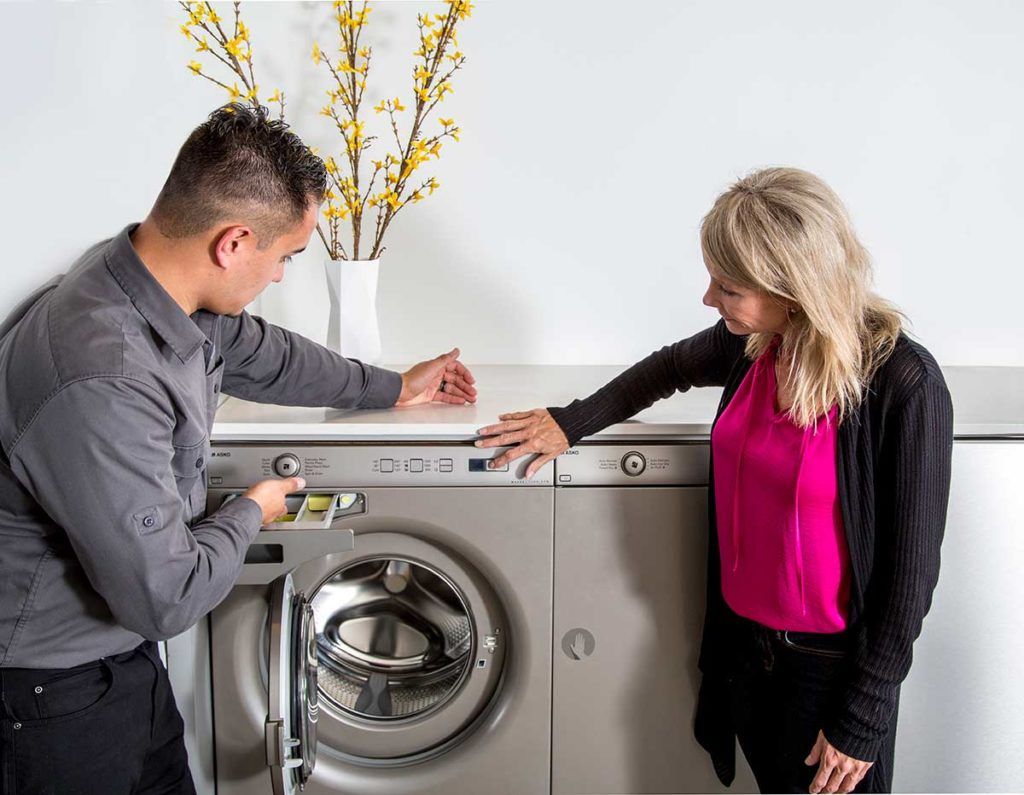
Of course, cheaper models are going to survive for only two-thirds to three quarters as long as middle-of-the-road models, while top-end models may last nearly twice as long.
But those lifespans only hold if you are diligent about maintaining your appliance. A poorly maintained Bosch washer may not last as long as a well-maintained Roper washer, which is why maintenance is so important to get your money’s worth and save money in the long run.
How easy does the brand make owning the appliance?
As servicers, we know a product’s reliability isn’t just about expenses. Sometimes, just avoiding the headache and time suck that is broken laundry appliances has value beyond dollars saved. Here are a few ways brands can make a product easier or harder to own:
QUICK RECAP
Laundry Excellence
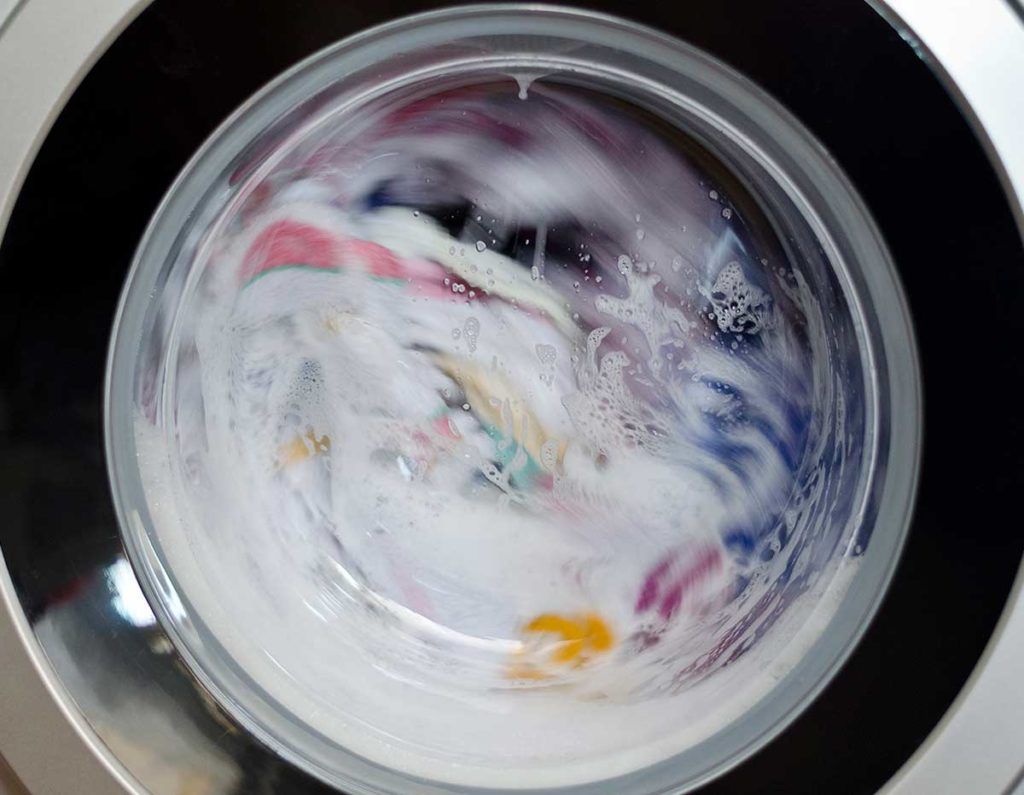
How well does it do the job I’m buying it for?
We believe reliability is one of the most important considerations when buying an appliance, and we hope you agree. But we also understand that, at the end of the day, laundry appliances are there to clean and dry clothes.
Unlike refrigerators, dishwashers and cooking appliances though, washers and dryers have the added complicating factor of contributing to the breakdown of the very clothes they are caring for, including shrinking, fading, pilling, stretching, loose threads and holes. A poor washer and dryer combo could wear out your clothes faster, requiring you to buy more replacement clothes, adding to the cost of the washer and dryer.
So how do you know which washer and dryer will be best for you? One that is both excellent at cleaning and drying without damaging your clothes too much? Here are the key features to look for to find the right laundry system.
Washers
Dryers
Both
But all the technology in the world won’t matter if you’re not using the washer and dryer properly or taking care of it between cycles.
Two Other Cost Considerations
What about energy and water efficiency?
Energy and water efficiency should be a consideration when buying a new washer and dryer — washers use a lot of water, and dryers are among the biggest energy hogs in your home — but there’s more to it than looking at ENERGY STAR® ratings. In fact, higher efficiency washers and dryers take far better care of your clothes, so they don’t wear out nearly as quickly.
Washers
Dryers
Both
Clearly, go for the ENERGY STAR product where you can — the drawbacks are by and large overblown — but don’t base your decision solely on ENERGY STAR ratings because they don’t tell the whole story of the product’s water and carbon footprint.
How will it perform as an investment in my home?
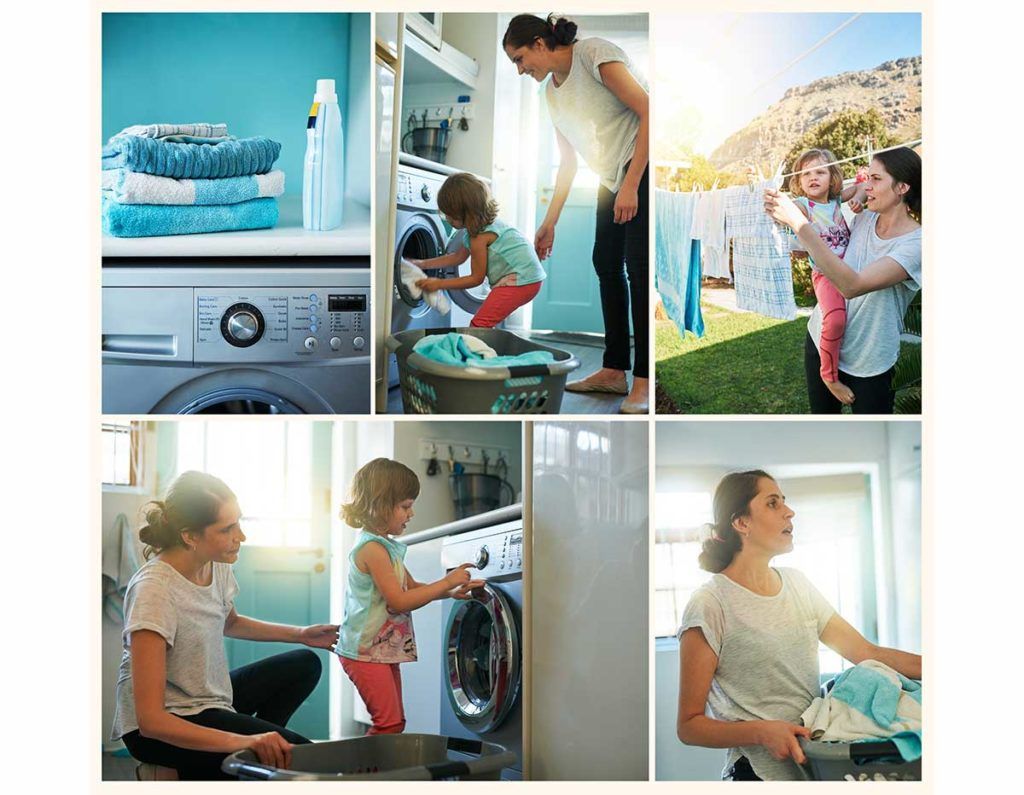
That’s right, appliances can be an investment in your home. A recent Zillow report showed that homes with professional-grade appliances had sale prices 29% higher than similar homes without professional-grade appliances.
Why? Well, for one, high-end appliances provide a lot of utility and value to homeowners. Laundry appliances that save money on utilities, run quieter and clean clothes better are of course much preferred by homebuyers. So it stands to reason that homebuyers would pay a premium for homes with professional-grade appliances.
And guess who else gets to enjoy these benefits as long as they own the house? You!
So if you’re considering some home renovations to increase the value of your property, just remember, replacing your appliances requires a whole lot fewer headaches and work than, say, remodeling a bathroom.
One consideration to keep in mind: while there is no need to buy washers and dryers in sets (unless you are stacking them), the simplicity and visual appeal of matching washers and dryers can add value to your home. But if that isn’t a major concern, buy the best washer and dryer you can find, and the brands don’t need to match.
What Is the Ultimate Cost of a Laundry Units?
Some folks still get sticker shock when they see a washer at $2000 (as is the case for the top-of-the-line LG model), but we encourage you to think differently about that cost. Remember, this is a product that is performing an essential but thankless task for your household, several times a week for well over a decade. Really, when was the last time you did laundry by hand, washing each item individually? Dishwashing seems an infinitely easier task in comparison. Now imagine doing the laundry by hand 8,000 times over the coming years of your life (as a high-end washer can promise), how much would you pay not to do that?

Would you pay 20 or 25 cents per load not to have to do your laundry by hand? Because that’s what a high-end $2,000 washer costs per load. That’s chump change compared to the laundromat.
And is it worth it to pay 10 cents less per load for a washing machine that doesn’t clean as well, takes longer per cycle, is noisier, is more liable to break down and costs between $120 and $500, and will need to be replaced sooner? And if that washer also doesn’t take good care of your clothes, you may need to replace those sooner as well, adding even more costs on top of the initial sticker price. At a certain point, you may even end up paying more for a cheap washer than for a high-end washer that doesn’t break and lasts longer.
So at the end of the day, at least to us, it makes sense to pay a dime more per load for cleaner clothes and far less headaches. Trust us, you’ll be thankful you made the investment.
Our Grades
Brand Customer Support Product Reliability How It Performs Warranty Service Locator 
A Click Here 
A Click Here 
B Click Here 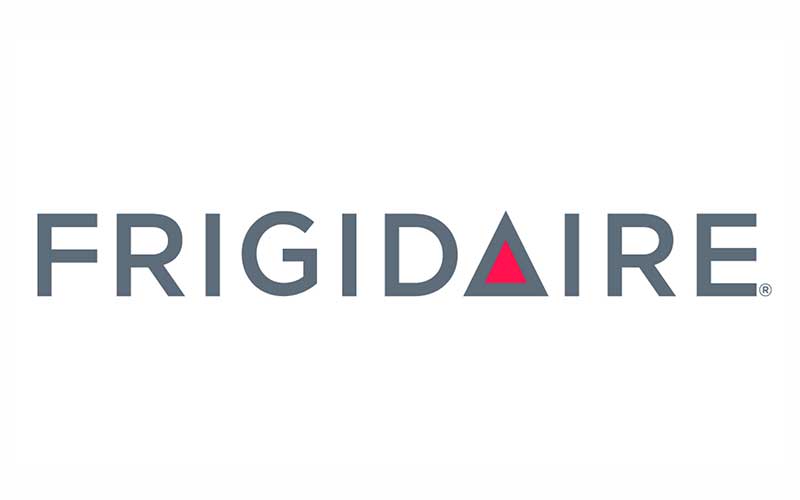
B Click Here 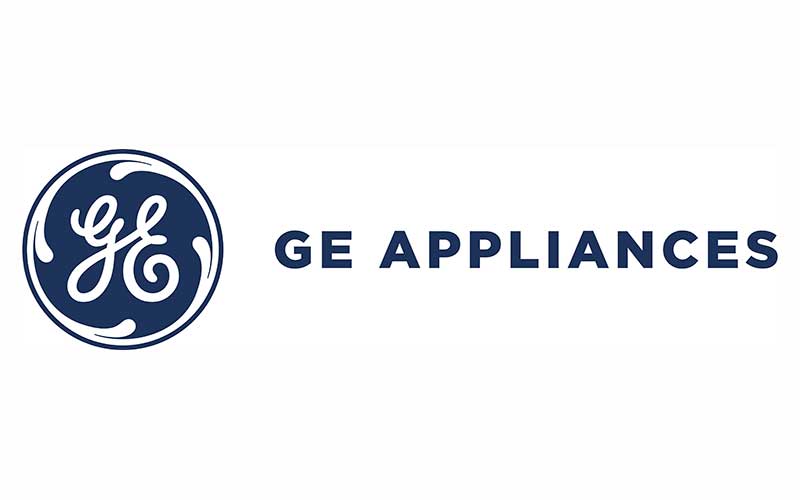
B Click Here 
C Click Here 
B Click Here 
C Click Here 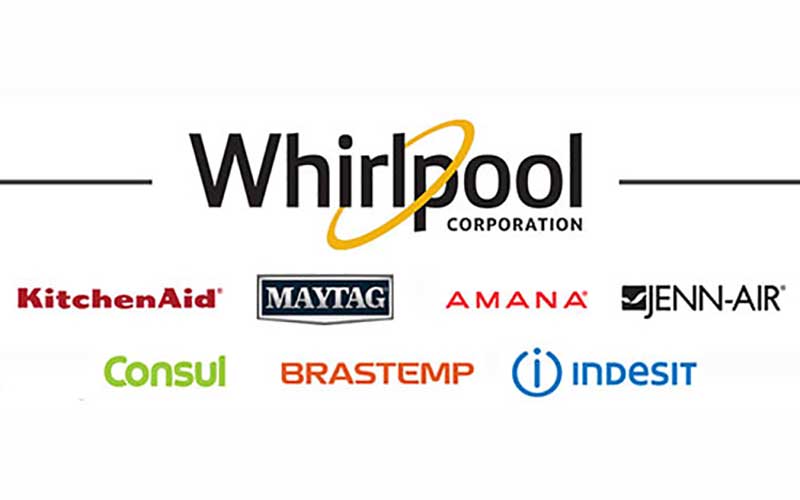
B Click Here



